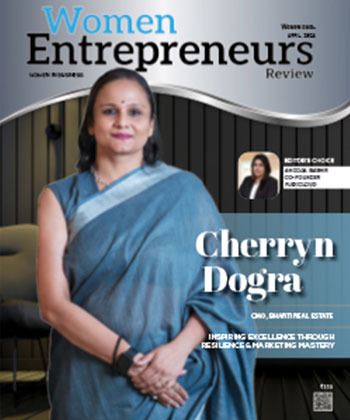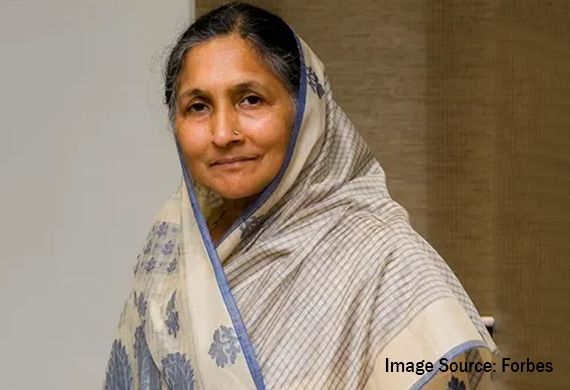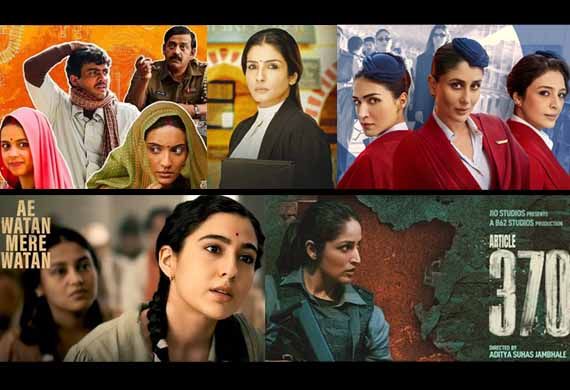
Walking An "Extra Mile" To Make Education "Extra-Ordinary"!
By: Pushpita Chattopadhyay, Head of Academics & Special Projects, Birla Edutech/Birla Open Minds
A 21+ years’ experience academician, who is focused on limiting childhood stress.
The present era is witnessing a paradigm shift in the way educators are educating and learners are assimilating information in the schools. This transformation in teaching learning process is all set for futuristic trends in the education system.
Robert Browning said, “Our aspirations are our possibilities.” The aspirations are futuristic, however the possibility of implementation of the ideals upheld by the New Education Policy rolled out in 2020, remains to be tested with time. However, it is our responsibility to implement NEP 2020 effectively.
NEP 2020 has introduced a number of innovations to set universal benchmarks of educational quality in India. As a part of the global community of International schools, we have bolstered up many aspects of our system to make the required fixes to accommodate the necessary changes that come with the new policy. It won’t be wrong to say that this needs a giant reconfiguration in view of the developmental and learning needs of children.
The refurbishments with regard to the policy would include but is not limited to the following aspects:
1. Restructuring curriculum to augment vital content and develop critical thinking:
There are two main things that schools need to do to effectively implement NEP 2020 - a) changing the pedagogical structure and b) transforming the teaching-learning process.
The revolutionary change in the school structure from 10+2 to 5+3+3+4, comes as a big relief. To make this transition smooth, teachers will be trained to bring in an adaptive learning curriculum which is in the best interest of the learners and concurrent changes will be expected to be made. Parents too will have to be familiarised with this change.
To transform the teaching – learning process, the following steps are mandatory:
Emphasis on core essentials
The need for mapping of the curriculum across grades and narrowing it to the respective core content only with focus on practical application-based learning is the prerogative. More focus at an early age on reading, writing, and learning of basic mathematical concepts would be fostered as suggested by NEP. This reduction will generate space for teachers to add activities related to experiential learning, creative and critical thinking skills, 21st century skills, etc. Blending subjects, streams and technology to create a holistic learning experience for students along with the component of digital literacy, scientific temper and computational thinking and not rote learning and memorising to score marks during exams will be the ultimate goal at school level.
Working towards promoting multilingualism
Encouraging bilingualism/ multilingualism to achieve the best outcomes has been stressed upon by the new education policy. Right from giving the students an academic advantage, improving competitiveness in the job market and increasing awareness of the culture, the advantages are many and hence shall be imbibed into the school structure.
No hard separations between subjects and disciplines
No hard separations between arts and sciences with an aim of promoting multidisciplinary and holistic educational approach would be a crucial fix. Along with this, curricular and extracurricular activities; vocational and academic streams etc. will need to be integrated. This will eliminate pointless hierarchies between different areas of learning.
Vocational training and coding right from Class 6
The curriculum for coding will need to be designed in such a way that it is both educational and engaging for the students. Through coding, students can learn to create games and applications for multiple platforms such as Android, Windows, etc. Mathematics and computational thinking needs to be given increased emphasis throughout the school years, starting from foundation stage-by regular use of puzzles and games. Required technical support in terms of hardware and other requirements will be addressed.
As mentioned in the NEP one of the bagless days can be utilised for hands-on learning of the vocational subjects.
Refurbishing classroom teaching
We feel that one of the most laudable features of NEP 2020 is the focus on ‘learning outcomes’. In order to achieve the same standards, the teachers would be adequately trained and will be given a conducive working environment. Their professional development would be continuous and incentives would be offered throughout their career. Interactive, project driven and activity-based classes would be the focal point.
2. REHAULING THE EXAMINATION PATTERN
Conducting the examinations semester wise and having two exams annually will be the new practice. Since board exams won’t be held in high regard like they have been for years and will primarily test core capacities, and competencies stress on the same will decrease.
Fixing the examination system to accommodate an application based approach to subjects and possibility of multiple attempts is going to be a welcome feature.
The freedom to have flexibility in format and wide-ranging combinations of subjects will bring the system closer to the practical reality of the new generation.
The progress card will now be designed to reflect the 360-degree assessment of a student. The progress card will include self-assessment, peer assessment and teacher assessment.
Generating a multidimensional report card that reflects the progress and uniqueness of each learner in the cognitive, affective and psycho-motor domains will be an additional jewel in the crown.
Over and above all this the proposal to set examination papers at two levels, ‘standard’ and ‘advanced’ for Math is an excellent idea. This will ensure that all students would at least have a basic knowledge of the core subjects up to the secondary level, thus preventing a ‘skewed’ educational foundation.
Key-Stage Assessments aimed at grouping classes with similar pedagogical and curricular requirements into Key-Stages - at end of classes 3, 5, 8 will be a welcome change since tracking the progress of learners at regular intervals will be possible rather than having it at the end of class X & XII when it is too late to do anything significant.
Most curricular and pedagogical aspects such as the use of blended learning, inculcating 21st century skills in students, teaching through experiential learning and discouraging rote learning has always been a part of the methodologies followed by the international schools.
360 degree report cards also are a norm in most international schools. Whilst implementation of the aforementioned areas is the first step, a lot needs to be in place to achieve the goals of the policy in future. As a part of a private school system, we are optimistic about the successful implementation of NEP 2020.






